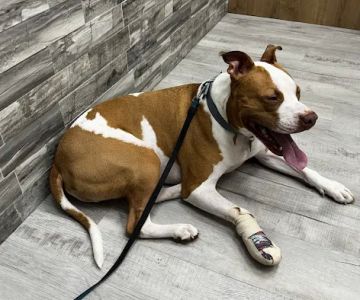- 1 - Understanding the Symptom of Foam Coughing in Dogs
- 2 - Common Causes After Exercise
- 3 - Recognizing Serious Health Risks
- 4 - Real Owner Stories and Lessons
- 5 - Prevention and Care Strategies
- 6 - When to See a Veterinarian Immediately
1. Understanding the Symptom of Foam Coughing in Dogs
When a dog starts coughing up foam after exercise, it can be alarming for any owner. Foam can appear white and frothy, often mixed with saliva and sometimes mucus. This symptom doesn’t always mean a medical emergency, but it’s a sign that your dog’s body is reacting to something — from overexertion to an underlying health problem.
Physiologically, foam forms when air mixes with fluid in the respiratory or digestive system. Understanding the source is key to addressing the issue properly.
2. Common Causes After Exercise
One of the most common explanations is overexertion, particularly in warm weather or in dogs not accustomed to intense physical activity. Dogs that gulp large amounts of air or water during exercise may also cough up foam due to mild stomach upset or irritation.
Other causes include mild respiratory inflammation, kennel cough, or even acid reflux triggered by increased physical activity. Short-nosed breeds like pugs and bulldogs are more prone to respiratory distress after exercise, making them more susceptible to foam coughing episodes.
3. Recognizing Serious Health Risks
While some cases are harmless and resolve quickly, foam coughing can also be linked to dangerous conditions. Heart disease, lung infections, or bloat (gastric dilatation-volvulus) can present with similar symptoms. In these cases, the foam is often accompanied by other warning signs — lethargy, rapid breathing, collapse, or a distended abdomen.
If your dog shows any of these additional symptoms, it’s important to stop exercise immediately and seek veterinary help without delay.
4. Real Owner Stories and Lessons
Consider the case of Max, a four-year-old Labrador from Phoenix. After a long game of fetch on a hot afternoon, Max began coughing up white foam and seemed unusually tired. His owner, concerned it was heatstroke, rushed him to a clinic. It turned out to be a mild respiratory infection worsened by heat and exertion. Quick veterinary care helped Max recover fully.
In another case, Bella, a senior poodle, would cough up foam after short walks. Tests revealed early-stage heart disease. The diagnosis allowed her family to manage her condition with medication and tailored exercise routines, significantly improving her quality of life.
5. Prevention and Care Strategies
To reduce the risk of foam coughing, ensure your dog’s exercise intensity matches their fitness level and health status. Avoid strenuous activity in extreme heat, and provide access to fresh water — but in controlled amounts to prevent gulping.
Regular vet check-ups can detect underlying respiratory or cardiac issues before they become severe. Keeping up with vaccinations, especially against kennel cough, can also help prevent some causes of foam coughing.
6. When to See a Veterinarian Immediately
If foam coughing happens repeatedly, is accompanied by breathing difficulties, weakness, vomiting, or a swollen abdomen, seek immediate veterinary attention. Even if the episode passes quickly, chronic or recurring foam coughing warrants a professional examination to rule out serious illnesses.
For personalized advice, clinics like Hidden Brook Veterinary can assess your dog’s overall health, recommend safe exercise routines, and provide targeted treatments if necessary. Quick action not only ensures your pet’s comfort but can also prevent life-threatening complications.












